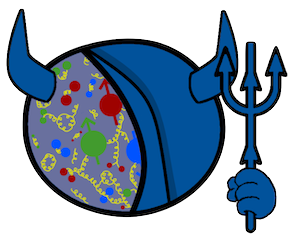Speaker
Description
The hyperpolarization technique Signal Amplification By Reversible Exchange (SABRE) distills spin polarization from parahydrogen during reversible chemical interactions of the target with a catalyst. Typically, the largest spin polarization can be generated at ultralow magnetic fields (B~10 μT). At these fields, roughly 5% spin polarization may be generated on nuclear targets like $^{13}C$ and $^{15}N$ in seconds, with hundreds of molecular targets demonstrated. However, the ultralow field conditions often permit polarization flow out of the target nucleus into auxiliary nuclei. For instance, hyperpolarization in the presence of a spin-1 quadrupolar nucleus at ultralow field is not possible with the current array of techniques, as polarization flow to the quickly relaxing quadrupolar nucleus quenches the available spin polarization. Here, we will discuss the development of two new spin polarization methods that circumvent such issues by utilizing shaped magnetic fields (trivial to implement) and field sequences. The first approach focuses on the polarization of $^{13}C$ (spin-1/2) in the presence of a $^{14}N$ (spin-1) nucleus. The second builds in methods to prevent polarization from flowing to other spin-1/2 nuclei throughout the experiment. These new experimental methods offer a way to expand the scope of hyperpolarizable targets and improve the efficiency of the polarization process.

